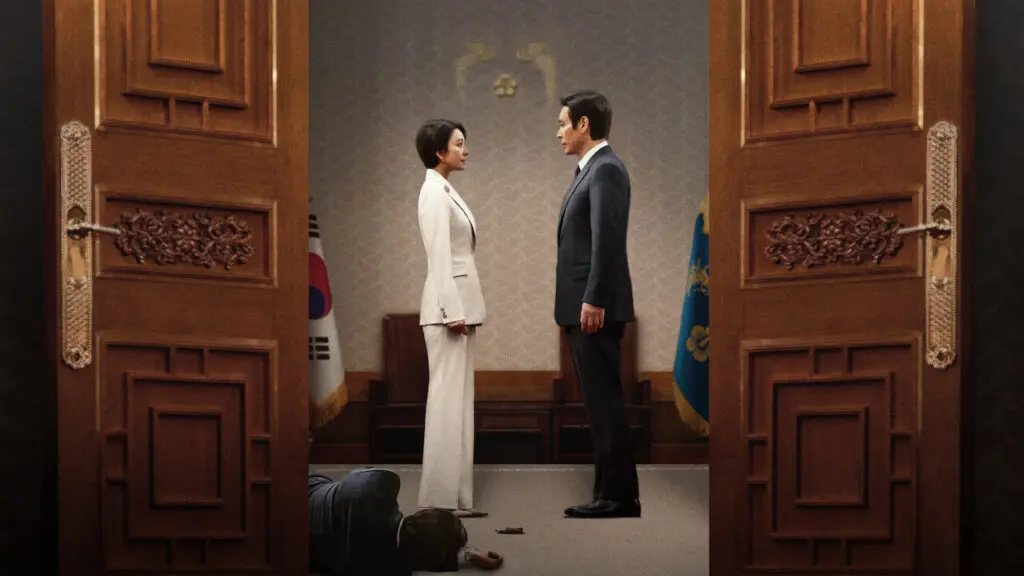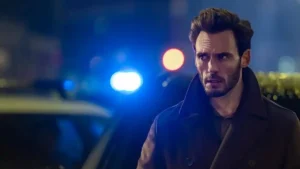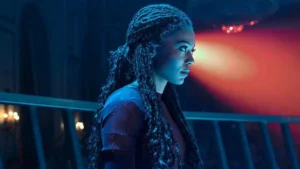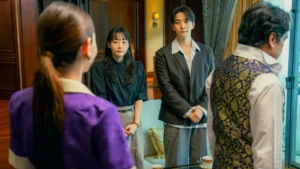Summary
The Whirlwind is much too dry for its own good, bogging down a standard political thriller with off-putting self-seriousness.
With ridiculous leadership squabbles currently underway in both the U.S. and the U.K., two of Netflix’s most sizeable and vocal markets, the time seems right for a political drama that burns the deep-rooted corruption and bizarre pageantry of public office for fuel. Enter, then, The Whirlwind, a verbose K-Drama that never met a monologue it wouldn’t languish over for twelve long hours.
It doesn’t take much effort to imagine the world of The Whirlwind, in which politics is intimately tied to big business, since we’re already living in that world. But the topicality doesn’t help the show work better as a drama. Instead, it’s a largely dull and brutally overlong affair that is much too self-satisfied to qualify as a breezy binge.
Inside the Blue House, South Korean President Jang Il-jun (Kim Hong-fa) benefits from a cushty arrangement with the Daejin Group, a prestigious conglomerate, which is perhaps just as well since they own the hospital he’s rushed to when he suffers a cardiac arrest in his office.
Prime Minister Park Dong-ho (Sul Kyung-gu) has poisoned the president as part of a scheme to expose his corrupt dealings with Daejin and root out further rot in the Blue House by being promoted to Acting President in Il-jun’s absence. It’s a dark plot, but such is the way of things in politics, especially since Dong-ho is motivated by the death of his friend, assemblyman Seo Gi-tae, who was also investigating corruption.
But Dong-ho is opposed by Deputy Prime Minister Jung Soo-jin (Kim Hee-ae), who is willing to use every opportunity to thwart his efforts and use the President’s ill-health to further her expansive political ambitions.
All the pieces are here, then – crooked relationships, deeply immoral characters, conspiracies, double-dealing, and all the usual political shenanigans. Why, then, is it so boring?
This is hard to put a finger on since The Whirlwind comes from Park Kyung-su, a screenwriter of some renown. But it’s certainly the writing that’s at fault, since the performances – especially the leads, with Hee-ae returning to the shrewd girl-boss archetype almost immediately after Queenmaker) are pretty stellar throughout.
But this is a show that operates with a surety in itself that ends up coming full circle and being off-putting. The monologues are hard to take seriously at times, ranging from dry to so overwrought that they’re laughable. We’re reminded again and again of the tricky moral underpinnings of governance and shown the ethical dilemmas that even well-intentioned statesmen are invariably faced with, but the po-faced seriousness of it all is just tough to engage with on any level beyond curiosity.
It doesn’t help that the characters are largely hemmed into their government postings rather than being possessed of any real depth. Key background details and character quirks are omitted in favor of pushing the plot forward and building faux-tension from various arbitrary ticking-clock devices.
It seems weird to criticize a serious political drama for not being fun enough, but The Whirlwind is like that. Its humourlessness is just dry, with too-familiar genre mechanics and an ambition to be resonant and meaningful that mostly serves to highlight how much less enjoyable it is than similar dramas that take themselves a bit less seriously.
Politics will always be interesting, especially in a period of flux like so many of us are in now, but TV still has to work as entertainment, and The Whirlwind unfortunately doesn’t.
RELATED:




